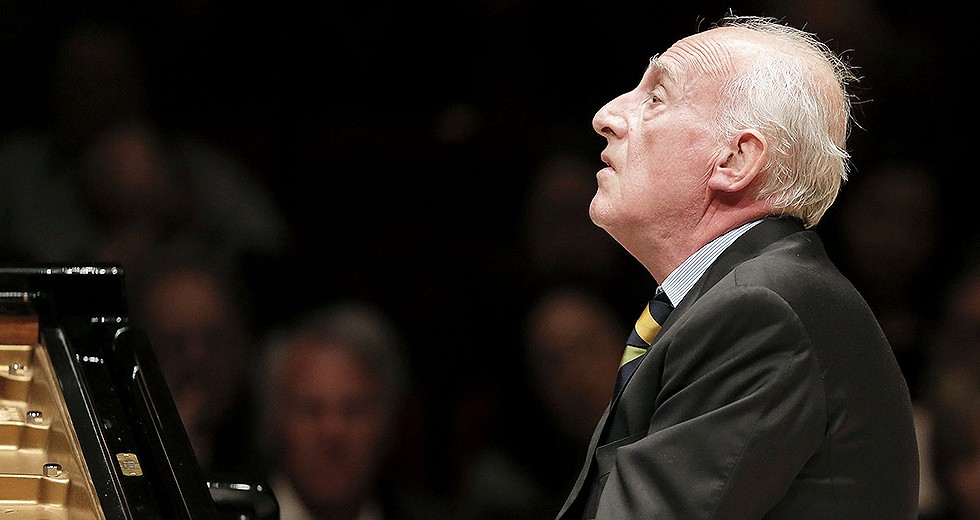
Pianist Maurizio Pollini, one of his generation’s foremost interpreters of Chopin, returns over the next month to this great well of inspiration. For recitals in Chicago, New York City and suburban Washington, D.C., he has programmed works by the composer who helped launch his career 55 years ago. At 18, the Italian-born artist won the International Chopin Piano Competition in Warsaw, with a performance of the composer’s Piano Concerto No. 1.
Fittingly, for his first concert with the New York Philharmonic since 1994, Pollini again will perform Chopin’s Piano Concerto No. 1 — coincidentally, the same work in which he made his N.Y. Phil debut in 1969. Also on the Oct. 16 program, conducted by N.Y. Phil music director Alan Gilbert, is Berlioz’s Le Corsaire Overture and Tchaikovsky’s Romeo and Juliet, Overture-Fantasy. Earlier that week, the pianist will appear in recital Oct. 11 at New York’s Carnegie Hall, with a program featuring Chopin’s Barcarolle in F-sharp Major, Op. 60; Two Nocturnes, Op. 55; Polonaise-Fantasy in A-flat Major, Op. 61, and Scherzo No. 3 in C-sharp Minor, Op. 39, along with Schumann’s Allegro in B Minor, Op. 8, and Fantasy in C Major, Op. 17. Pollini will offer the same program in an SCP Piano Series recital on Oct. 4 (as well as Nov. 1 at the Strathmore Center in North Bethesda, Md.).
“One could certainly say that Chopin invented modern piano playing,” Pollini has observed. “Perhaps one could also say that he invented the most beautiful sounds in the history of the piano.”
Gilbert, who calls Pollini “one of history’s legends on the piano,” admits that for his favorite musical pickup, “I listen back to back to his recordings of Chopin’s Etudes. It is an incredible honor to be able to perform with him. How great it is for the New York Philharmonic and for our audiences that he is coming here to play this iconic masterpiece [Chopin’s Piano Concerto No. 1].”
For Pollini, the essence to performing Chopin is “to bring out the greatness of the musical expression and the composer’s deep thinking,” he says. “It’s a profundity unique in the whole history of music.”
TOP: Maurizio Pollini in a 2014 recital at Carnegie Hall. | Photo: Jennifer Taylor/Carnegie Hall